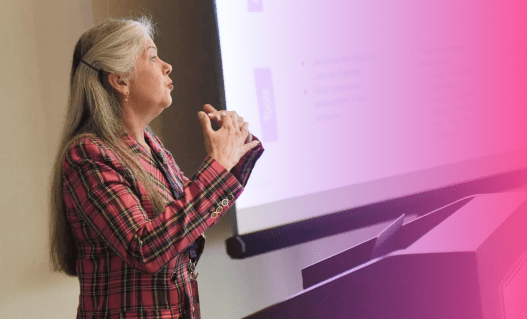Breaking the Mold: Transforming Student Retentionand Success in Chemistry
Stephanie Dillon
Learn how one professor is dramatically reducing DFW rates in her general chemistry course while upping the ante on student engagement.
Breaking the Mold: Transforming Student Retentionand Success in Chemistry
Learn how one professor is dramatically reducing DFW rates in her general chemistry course while upping the ante on student engagement.
APRIL 6TH STARTING AT 2:00PM EDT
Poor success rates in introductory chemistry courses keep too many students from becoming tomorrow’s engineers, scientists and healthcare professionals. That’s a challenge professor Stephanie Dillon is meeting head on—with remarkable success.
Over the past three years, Dr. Dillon has reduced DFW rates for her general chemistry course to less than 10 percent while the number of students receiving A grades has increased 22 percent. She also boasts class attendance rates of more than 90 percent. In this special presentation, Dr. Dillon shares her journey to transform the learning experience and why even after assigning 1,000 homework problems, students are still lining up to take her course.
Watch the Recording
Watch Now to Learn
- The value of iterating and improving in creating a flipped classroom community
- The power of combining Aktiv and Top Hat to support frequent, low stakes assessment
- How to harness real-time feedback to motivate and engage students
- How these efforts reduced student attrition below 10 percent


About the Speaker
Dr. Stephanie R. Dillon is the Director of Freshman Laboratories at Florida State University and the author of two nationally published textbook titles. During her tenure, she has rewritten the lab curriculum no fewer than seven times, reflecting a deep commitment to improving engagement and learning outcomes for thousands of students each year. Dr. Dillon regularly teaches large lecture courses comprising more than 300 students in both general and biochemistry and moved to a ‘flipped’ classroom model in 2019.
